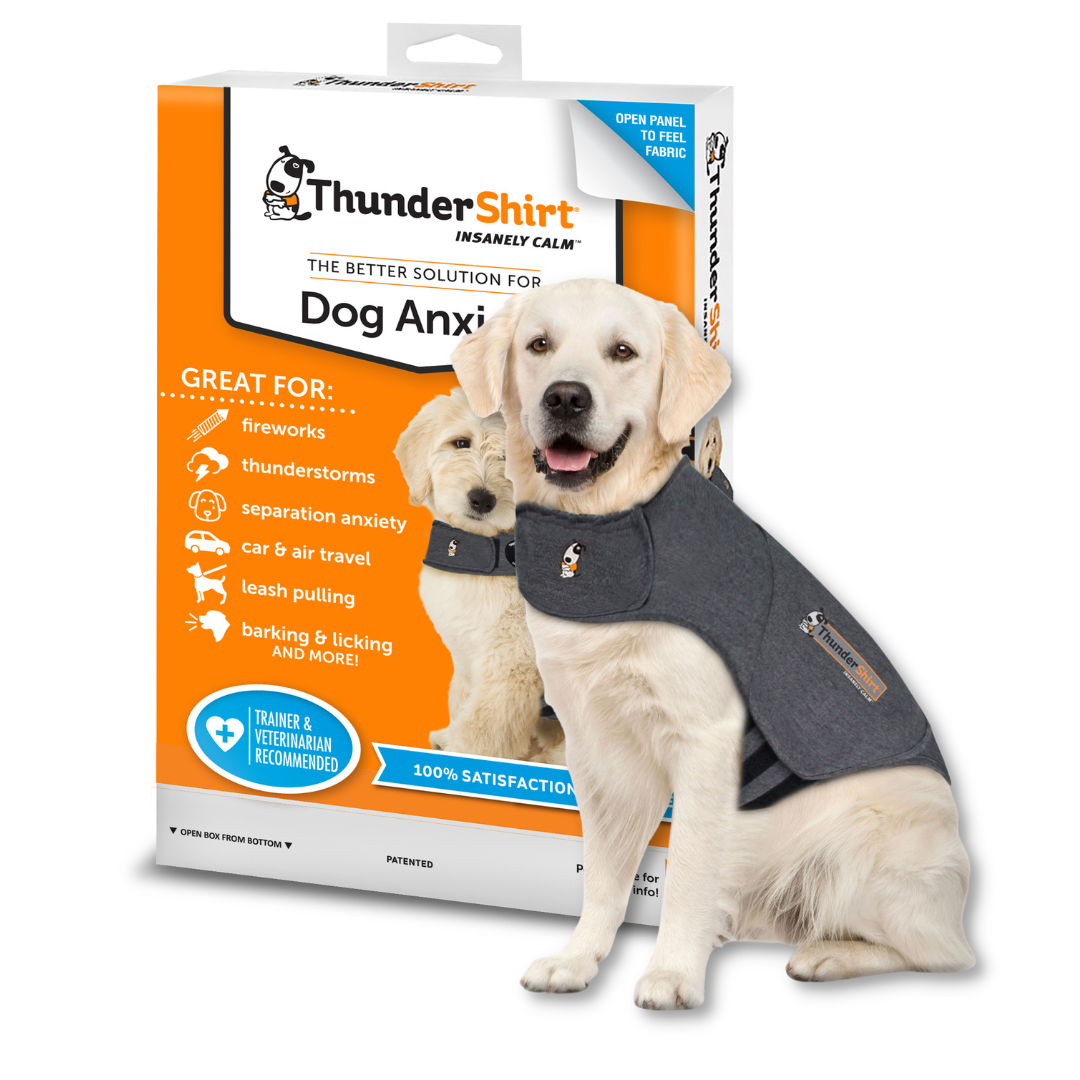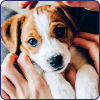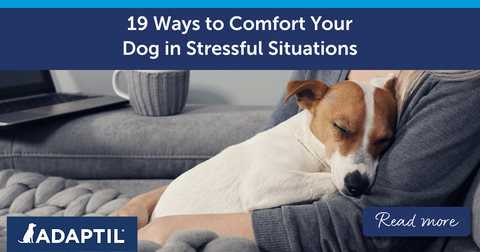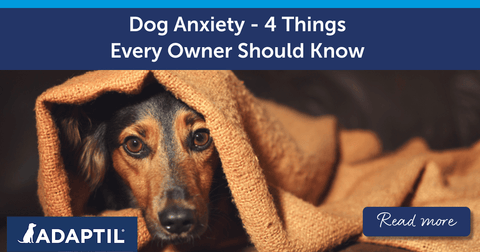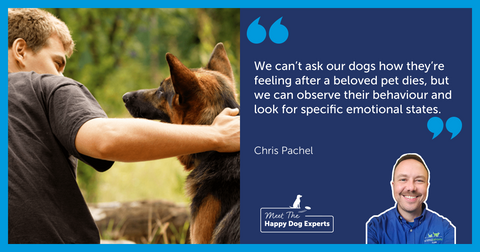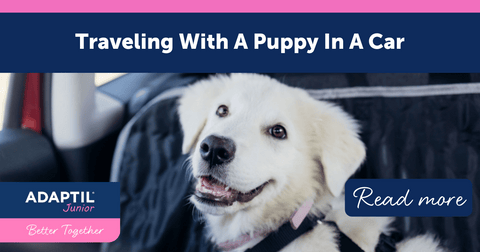Want to subscribe to our blog?
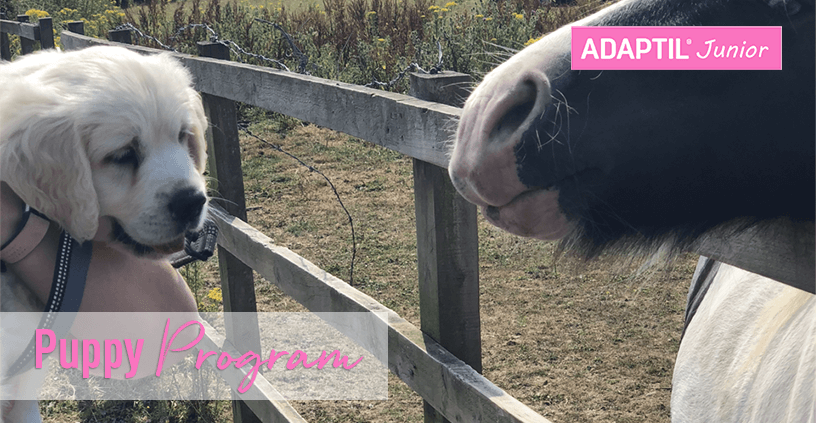
4 Socialisation Steps To Help Your New Puppy Adapt
Written by Adaptil, published on April 18, 2023
Did you know, that all young dogs go through a sensitive, learning phase?
Usually when a pup is between 3 - 17 weeks old, they'll enter into a socialisation phase. This is nothing to worry about! It's simply a time where your pup is best able to learn about their surroundings and new experiences, and learn to accept what's going on around them as part of normal life with nothing to be afraid of.
After this period, your pup may find it harder to cope with new experiences, so it's essential to introduce your pet to as many new experiences as possible during their socialisation phase and as part of their basic training.
To help your pup start learning, below, we've listed some steps you can take to ensure that all encounters are enjoyable - without being overwhelming!
4 New Experiences To Introduce to Your Pup
Your pup has many things to learn and get used to! Once they are used to their new home and new family, you should try and introduce them to new life experiences little and often. Be sure to keep new encounters quite short at first so that they get used to them gradually. Some key doggy milestones to consider include:
1. Meeting new people
Learning that new people are nothing to be afraid of is an important step for your pup! Your dog will need to meet lots of different people through their lifetime; from children to the elderly as well as crying babies, so it's important to familiarise them!
Introducing your pup to a broad range of people - shy, confident, and with all sorts of different clothes such as hats and glasses - will help your pup realise that they don't need to get spooked when they see someone wearing something different. Puppy classes are a great place to start for doggy introductions - your pooch should quickly learn to adapt to strangers, new puppies, and different smells, sounds and environments. Helping your pup feel comfortable around new people will also ensure that they stay calm when someone new turns up at your home.
2. Different sounds around the home
There are some appliances around the home that can startle your pup; have you noticed them looking uncomfortable when you're using the vacuum cleaner? You should encourage your pup get used to the hairdryer, hoover, doorbell, washing machine as well as road traffic, fireworks and thunderstorms. If your pup reacts calmly to these new sounds, reward them with a treat and praise to help them understand that there's nothing to be afraid of. The television may also startle your pup from time to time but they'll get used to you watching it and understand that if you're comfortable with it, they should be too!
3. Getting used to being handled
Especially when you visit the vet or go to the groomers, your pup will need to be able to cope with being examined or pampered. Getting your pup used to this kind of contact early will make it less intimidating for them. For example, they'll need to get used to being fitted with a collar, walked on the lead, having their temperature taken with a thermometer, and with having their eyes, ears, mouth, neck, paws, and tail examined. It's also best that your pup is able to take tablets from an early age. In terms of grooming, you should practice brushing your pup, trimming their nails, and bathing them yourself, so that they will easily adapt when being groomed by someone else.
4. Other things you can introduce to your new canine friend
It's hard to cover all the experiences that your pup can find new and daunting; however, introducing your pup to a range of experiences can help. Unfamiliar items like black bin bags, shopping trolleys and other things they may come across in a park walk are good to show your dog. It's also worth getting your pet used to elevators, escalators and automatic doors. When walking on pavements your pup will need to be comfortable with bicycles and cars on the road.
Your pup should also experience traveling by car, and perhaps even on public transport such as trains or busses. Keep treats close to hand to reward your pup when they settle down and are calm!
4 Ways To Help Your Pup Feel Secure In New Situations
1. Give your pup some space
If your puppy seems anxious or overwhelmed, allow them some space; giving them the freedom to approach the situation in their own time can help them to feel more secure. Common signs of discomfort to look out for include ears back, cowering, tucking in their tail, licking their lips and yawning. If you see your pup doing any of these things then it may be time to step back and give them some time!
2. Keep experiences positive
Try to make sure that new experiences are positive for your pup! You should give them a reward after each positive or relaxed encounter they have with something new. Never punish them if they don't react well, as this will only reinforce any anxieties they may have and unsettle them further. When introducing new people, give that person a delicious treat to feed to your pup and a favourite toy so that they can play together - this is an easy way to help your pup get used to new people!
3. Try to plan ahead
What's important in your life together? It's best that your pup is able to calmly experience things that are important to you. For example, if you enjoy going for walks in the country but live in a city then be sure to introduce your puppy to the countryside - and to things such as livestock as well as to loud city noises (from cars etc).
4. Support your pup through challenging situations
Make sure that you're there for your pup when they're encountering something new. Using ADAPTIL Junior during your pet's socialisation period can help to learn better and faster, and develop into a confident, well-balanced adult dog. Lastly, always make sure that you have a range of tasty treats on hand to reward your pup for their bravery, hard work and training!
Following our expert tips will help to ensure your bond with your dog goes from strength to strength.
Make sure to join our community for weekly advice from our dog behaviour experts as well as product offers and competitions.
 Related Posts
Related Posts
Legal notice The information collected is intended for Ceva Santé Animale and the group in order to manage your requests. This information can be shared with service providers in order to organize their management. In accordance with the General Data Protection Regulations, you have the right to access, rectify and limit the processing of your data. You can also, in certain cases, object to the processing, withdraw your consent and request the deletion and portability of your data. For any request in relation to your personal data, please visit this page.




















